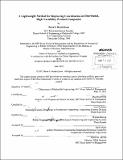| dc.contributor.advisor | Don Rosenfield and Josef Oehmen. | en_US |
| dc.contributor.author | Hendrickson, Brian S. (Brian Scott) | en_US |
| dc.contributor.other | Leaders for Global Operations Program. | en_US |
| dc.date.accessioned | 2012-09-27T15:30:16Z | |
| dc.date.available | 2012-09-27T15:30:16Z | |
| dc.date.copyright | 2012 | en_US |
| dc.date.issued | 2012 | en_US |
| dc.identifier.uri | http://hdl.handle.net/1721.1/73410 | |
| dc.description | Thesis (M.B.A.)--Massachusetts Institute of Technology, Sloan School of Management; and, (S.M.)--Massachusetts Institute of Technology, Dept. of Mechanical Engineering; in conjunction with the Leaders for Global Operations Program at MIT, 2012. | en_US |
| dc.description | Cataloged from PDF version of thesis. | en_US |
| dc.description | Includes bibliographical references (p. 71-75). | en_US |
| dc.description.abstract | Product companies face new challenges as they continue to expand their international footprints. Whereas globalization initially sought savings by outsourcing production to low-cost regions, emerging markets now present new sales opportunities with unique customer demands. Companies increasingly must be sensitive to local expectations at the same time that products are becoming more technology rich and with shorter life cycles. Improved coordination that enables greater speed, flexibility, and multi-market effectiveness is particularly important as companies shift engineering and commercial responsibilities to formerly production-only centers. This study develops and demonstrates an approach to one domain of coordination-the flow of material and related information between globally distributed sites-based on lessons from engineer-to- order (ETO) operating models. By examining contemporary trends in ETO and identifying several generalizable tensions, this study outlines key parameters that distinguish dynamic coordination needs from those embedded in conventional process improvement frameworks. The five-step approach developed in this paper takes a dynamic systems perspective on organizational interfaces and seeks to build feedback mechanisms at multiple levels. It targets the knowledge-transfer, business planning, and execution levels of material management while also addressing the behavioral and practical components of implementation. In doing so, the approach recognizes that uneven process maturity and uncertain external demands must be accommodated. It argues that traditional approaches to coordination have had limited success, because they are slow to adapt and encourage circumvention. Whereas these past methods have exchanged reduced process "waste" for greatly increased rigidity and process housekeeping, the proposed method seeks reinforcing loops that align stakeholders without exhaustive process definition or significant maintenance. A detailed case study at a global ETO business group illustrates the method and its initial results in an environment of limited patience for formal process development. The resulting portfolio of change initiatives, which includes inter-site service level commitments, local forecast sharing, service parts forecasting, and reverse logistics, demonstrates an integrative approach to business site interfaces that attempts to tie local short-term performance with global long-term success. | en_US |
| dc.description.statementofresponsibility | by Brian S. Hendrickson. | en_US |
| dc.format.extent | 75 p. | en_US |
| dc.language.iso | eng | en_US |
| dc.publisher | Massachusetts Institute of Technology | en_US |
| dc.rights | M.I.T. theses are protected by
copyright. They may be viewed from this source for any purpose, but
reproduction or distribution in any format is prohibited without written
permission. See provided URL for inquiries about permission. | en_US |
| dc.rights.uri | http://dspace.mit.edu/handle/1721.1/7582 | en_US |
| dc.subject | Sloan School of Management. | en_US |
| dc.subject | Mechanical Engineering. | en_US |
| dc.subject | Leaders for Global Operations Program. | en_US |
| dc.title | A lightweight method for improving coordination in distributed, high-variability product companies | en_US |
| dc.type | Thesis | en_US |
| dc.description.degree | S.M. | en_US |
| dc.description.degree | M.B.A. | en_US |
| dc.contributor.department | Leaders for Global Operations Program at MIT | en_US |
| dc.contributor.department | Massachusetts Institute of Technology. Department of Mechanical Engineering | |
| dc.contributor.department | Sloan School of Management | |
| dc.identifier.oclc | 810330426 | en_US |
